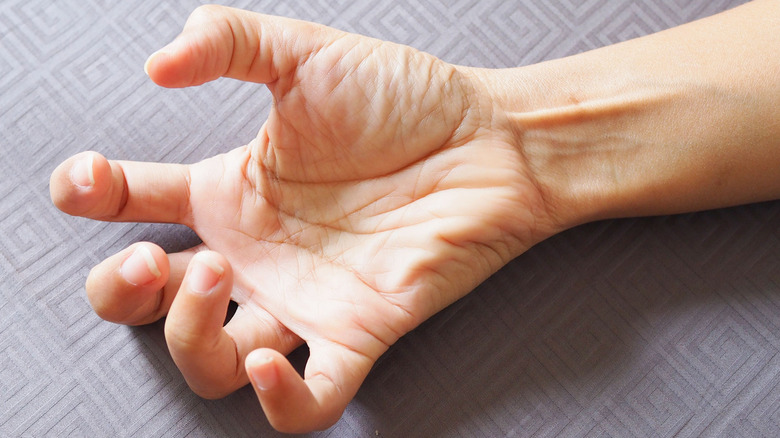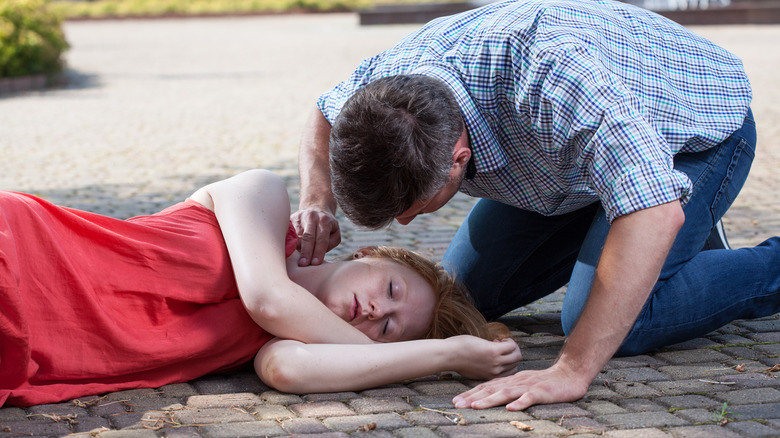The First Thing You Should Do If You See Someone Having A Seizure
Seizures can be scary for the patient and the witnesses, but they're not rare. According to the Epilepsy Foundation, 3.4 million people in the United States live with epilepsy, and 1 in 26 people will develop epilepsy at some point in their lives. For a full third of patients, there is no treatment that is effective for them — that's a lot of people living with seizures and the fear of seizures. It also makes it quite likely that at some point, many of us will witness someone having a seizure, meaning it's important to know at least some basic seizure first aid.
While there's nothing you can do to stop a seizure once it starts, there are steps you can take to help the person stay safe and recover smoothly. "The vast majority of seizures last a minute or two and then end on their own. The real job is to make sure the patient is as safe as possible while they're experiencing the seizure," Dr. Vikram Rao, an associate professor of neurology at the University of California, San Francisco, told Health.
First, don't panic. Seizures are a result of uncontrollable brain activity and can be mild or severe. In either case, the person may be unaware of their surroundings, and unable to control their movements and reactions.
Stay calm, and don't panic
If you see someone having a seizure, the first thing to do is make sure the person and their surroundings are safe. That means moving them to a safe place if, for example, they're close to stairs or water, keeping other people out of the way, and removing any hard or sharp objects that could cause injury (via WebMD).
Secondly, do not put anything in the person's mouth. "There's an old wives' tale that when someone is having a seizure, you should put something in the person's mouth," Dr. Kathryn Davis, neurologist and medical director of the Epilepsy Monitoring Unit at the Penn Epilepsy Center, told Penn Medicine. "That is something you absolutely should not do."
Next, turn the person onto their side to help keep their airways open. In most cases, the seizure will pass on its own with no permanent damaging effects. That being said, there are some cases that can be more serious and require medical attention. If the person is struggling to breathe or doesn't wake up after the event, if they are injured, have another known medical condition, or are having successive seizures, seek emergency medical help. The same goes for any seizure that lasts more than 5 minutes.
When the seizure is over, don't leave right away. Calmly explain what happened — the person will likely be disoriented and may need help getting home.


